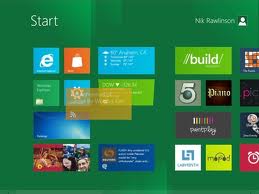 Who has the lion’s share?
Who has the lion’s share?
In this post I thought we could have a look at who has the lion’s share of the Operating system market. That’s not such an easy question anymore, as the idea of sitting at a desk and performing all your duties has changed drastically over the last few years.
The operating systems we use daily are now spread over the following device types:
- Desktop Computers and laptops
- Tablet computers
- Smart Phones
- Server machines
Gone are the days of the Microsoft Windows revolution, the massive change in how we used computers that made us all want one, and then get really frustrated with it as the technology kept changing. In the pursuit of progress, the Operating system was continually transformed into something else just as soon as we were just getting to grips with it. Our parent company, IT Turning Point, exists primarily to educate and inform. This keeps everyone using their systems and software correctly, and ensure they always work to their benefit.
Let’s look at the Desktop
|
Desktop operating system browsing statistics on Net Applications |
||||
| Windows 7 |
47.53% |
|||
| Windows XP |
28.53% |
|||
| Windows 8 |
10.68% |
|||
| OS X |
7.68% |
|||
| Windows Vista |
2.10% |
|||
| Linux |
1.48% |
|||
| Desktop OS Market Share as of February 2014 according to Net Applications |
Microsoft still has a massive share in the desktop market, primarily because of their prevalence in the business world and enterprise companies. They have the history of targeting this market successfully, and that past success really what made them who they are today. It is interesting to note the various incarnations of the Windows operating system still dominating the desktop marketplace.
When it comes to mobile, things are different indeed
Microsoft did not see the mobile market as their main thrust, and as such they left their entry into the arena a bit late. By the time they made their move, Apple had introduced us to the touch screen smart phone, and the mobile landscape had changed. Google entered the market with Android, its operating system for mobile devices, and the landscape changed once more. Let’s look at the picture for mobile devices as things stand:
|
Worldwide smartphone sales to end users by operating system in 2013 |
||||
| Android |
79.0% |
|||
| iOS |
14.2% |
|||
| Windows Phone |
3.3% |
|||
| BlackBerry |
2.7% |
|||
| Other |
0.9% |
|||
| Mobile OS Market Share as of 2nd quarter 2013 Gartner | ||||
|
Mobile operating system browsing statistics on Net Applications |
||||
| iOS |
52.96% |
|||
| Android |
36.14% |
|||
| Java ME |
4.44% |
|||
| Symbian |
3.50% |
|||
| BlackBerry |
1.42% |
|||
| Kindle |
0.93% |
|||
| Windows Phone |
0.45% |
|||
| Other |
0.16% |
|||
| Mobile OS Market Share as of February 2014 Net Applications[1] |
As you can see, the companies in the mobile arena are very different from those on the desktop, and it’s still evolving – these mobile devices also include tablet computers as well.
Android have swept the floor with their OS, a large amount of key hardware manufacturers signing up and skinning the core Android to make it their own. Layers such as HTC’s Sense and Samsung’s Touchwiz enable these devices to stand apart despite the same underlying core. Google have kept their hand in with Android devices running an unskinned version of Android – these devices are all part of Google’s Nexus range. See our recent posts for articles on these devices.
The current statistics vary drastically, but it is now being suggested that around 72% of Internet traffic is coming from mobile devices. A very interesting statistic, and again as we mentioned at the beginning, this changes the way we do computing in a big way.
The second table above shows the Operating systems we are browsing with in the mobile market, as you can see Windows is at the bottom and Microsoft are now desperately playing catch-up.
Conclusion
Microsoft have still got a lot to offer, and they still have the main desktop market sewn up for now. They have moved late for the mobile market however, and the writer has to wonder whether they will continue in this arena or pull back and concentrate on what they do best. Considering that we are moving more towards mobile working, and more tablet computers are being bought every day, that may not be a move they can afford if they wish to maintain their own future growth.
What OS do you use and what devices do you have? Let us know your thoughts.
